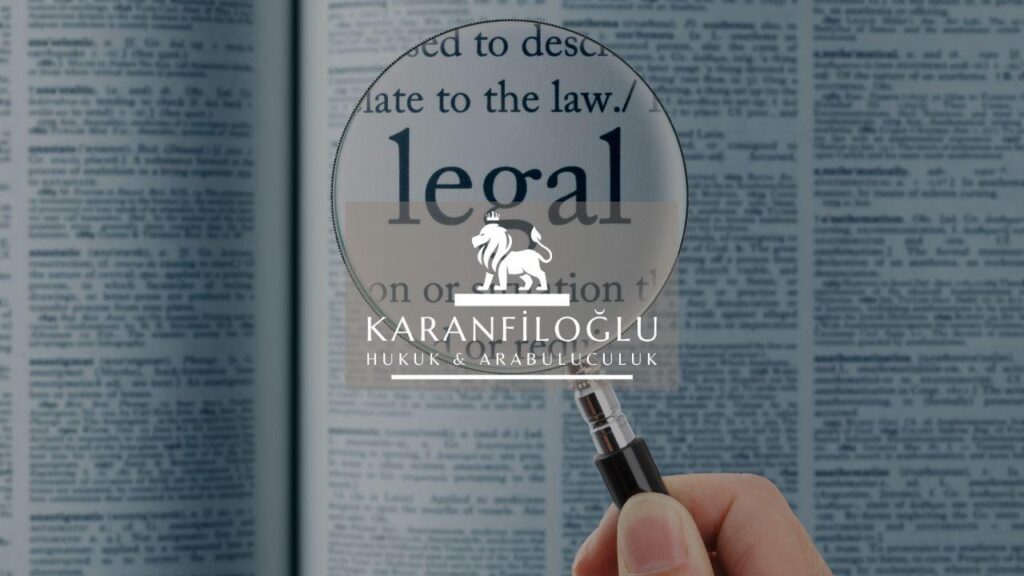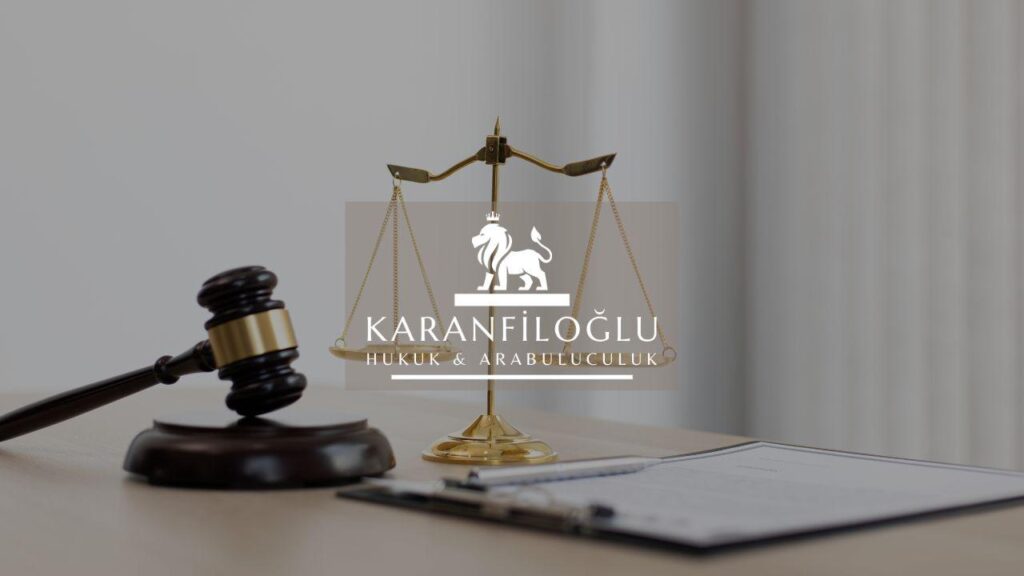Navigating the intricacies of Turkish Insurance Law requires a thorough understanding of legal provisions designed to regulate the industry and protect the rights of policyholders. At Karanfiloglu Law Office, our expertise encompasses the full spectrum of regulations outlined under the Turkish Commercial Code (TCC), specifically Articles 1401 to 1520. These articles set comprehensive guidelines for contractual obligations, risk management, indemnity, and the overarching responsibilities of insurance companies operating in Turkey. Additionally, the Insurance Law No. 5684 delineates further legislative framework governing insurance activities, ensuring a balanced relationship between insurer and insured. Whether it involves disputes over claims, compliance with statutory requirements, or navigating complex policy terms, our experienced legal team at Karanfiloglu Law Office stands ready to provide expert guidance and representation to clients seeking to safeguard their interests under Turkish Insurance Law.
Overview of Insurance Contracts in Turkey
Insurance contracts in Turkey are meticulously governed by the Turkish Commercial Code (TCC), particularly Articles 1401 through 1520, which stipulate detailed provisions on the formation, execution, and termination of insurance agreements. These articles emphasize the principle of utmost good faith (‘uberrimae fidei’), imposing stringent disclosure requirements on both the insurer and the insured at the time of contract formation. The TCC mandates that all significant risks and relevant facts must be transparently disclosed to foster fair risk assessment and prevent future disputes. Furthermore, policyholders are entitled to clearly outlined terms, conditions, and exclusions within the insurance policy, ensuring that ambiguity is minimized and coverage scopes are well-delineated. Regulation within the Insurance Law No. 5684 complements these requirements by establishing a legal framework aimed at enhancing consumer protection, mandating regular compliance checks, and enforcing penalties for breaches of contract terms or delays in claim settlements.
Moreover, Turkish insurance contracts are designed to provide balanced protection for both the insurer and the insured, with specific legislations addressing the nature and extent of coverages. Article 1426 of the TCC obliges insurers to indemnify policyholders for losses occurring within the scope of the policy, a fundamental assurance of economic security. On the other hand, Article 1446 outlines the policyholder’s obligation to notify the insurer promptly of any risk changes or incidents that could potentially trigger a claim, ensuring that the actuarial basis of the policy remains accurate. Failure to comply with these notification duties may lead to partial or total forfeiture of insurance benefits. Additionally, insurers are vested with the right to rescind contracts if material misrepresentation or nondisclosure is identified, as per Article 1448. These regulations collectively underscore the importance of transparency and adherence to agreed terms, fostering a trustworthy insurance environment where both parties’ interests are safeguarded.
Navigating complex insurance claims necessitates a meticulous understanding of the rights and obligations enshrined in Turkish Insurance Law. Article 1473 of the TCC specifically governs the procedures for filing claims, stipulating that policyholders must report losses within a reasonable time frame and provide all necessary documentation to substantiate their claims. Insurers, in turn, are required to process claims expeditiously, with Article 1476 defining the prompt period within which insurers must settle undisputed claims, thereby preventing unnecessary delays and ensuring timely indemnification. Additionally, disputes arising from claim settlements or policy interpretations can be addressed through arbitration or litigation, as provided under Articles 1389 and 1402, enabling both parties to seek impartial resolution. By adhering to these structured legal pathways, Karanfiloglu Law Office assists clients in maneuvering through the intricacies of insurance claims, enhancing their ability to attain fair and just outcomes under Turkish law.
Regulatory Framework Governing Turkish Insurance Law
The regulatory framework governing Turkish Insurance Law is primarily anchored in the comprehensive provisions of the Turkish Commercial Code (TCC) articles 1401 to 1520, which meticulously outline the legal parameters for insurance contracts, risk distribution, and indemnity obligations. Complementing the TCC, Insurance Law No. 5684 provides additional legislative guidelines focusing on the operational standards and conduct expected from insurance companies. This dual-layered approach ensures a robust regulatory environment that seeks to balance the interests of insurers with the protection of policyholders, fostering transparency, accountability, and fairness in insurance transactions across Turkey.
Furthermore, the Insurance Law No. 5684 establishes the Insurance Supervisory Authority, which is tasked with overseeing market practices to ensure compliance and uphold the integrity of the sector. The law mandates rigorous reporting and auditing requirements, and under Article 35, it empowers the Authority to conduct inspections, enforce sanctions, and issue regulations aimed at maintaining market stability. Additionally, Articles 37 and 38 of Insurance Law No. 5684 specify the procedures for handling consumer complaints and disputes, requiring insurance companies to establish dedicated complaint management systems. These provisions are designed to enhance consumer protection and enforce strict adherence to ethical and professional standards within the industry, safeguarding the rights and interests of policyholders.
Moreover, the regulatory framework enshrined within the TCC and Insurance Law No. 5684 works in tandem with other relevant national directives, such as the Turkish Tax Procedure Law and the Law on the Protection of Competition, providing a holistic governance structure for the insurance industry. Article 1377 of the TCC, for instance, delineates rules concerning the financial structure and reserves that insurers must maintain, ensuring their solvency and operational sustainability. Article 30 of Insurance Law No. 5684 further mandates insurance companies to adhere to stringent financial reporting standards and transparent disclosure practices. At Karanfiloglu Law Office, we leverage our deep understanding of these intertwined statutes to offer comprehensive legal services, including regulatory compliance audits, risk assessment, and dispute resolution, helping our clients navigate the complexities of Turkish insurance regulations seamlessly, thereby safeguarding their commercial and legal interests.
Dispute Resolution in Turkish Insurance Claims
Dispute resolution in Turkish insurance claims is governed by a well-defined legal framework designed to afford protection to policyholders while ensuring fair play in the industry. Pursuant to Article 1423 of the Turkish Commercial Code (TCC), any dispute arising from insurance contracts should initially be addressed through mediation, an effective alternative to conventional litigation, aiming to fast-track resolutions and minimize costs for all parties involved. Should mediation fail, the matter can be escalated to arbitration, as detailed under Article 30 of the Insurance Law No. 5684, which prescribes a structured approach to managing conflicts by appointing neutral arbitrators with expertise in the insurance domain. These mechanisms ensure that disputes are handled efficiently, preserving the rights of the insured while maintaining the integrity and trust in the insurance sector. At Karanfiloglu Law Office, our proficiency in navigating these legal avenues ensures our clients are adeptly represented in all stages of dispute resolution.
In instances where mediation and arbitration do not yield a satisfactory outcome, policyholders and insurers may resort to litigation. Litigation in Turkish insurance claims is governed by the procedural rules outlined in the Code of Civil Procedure (Law No. 6100), which provides a comprehensive set of guidelines for filing lawsuits, presenting evidence, and conducting court proceedings. Specifically, policyholders may invoke Article 1431 of the TCC, which outlines the obligations of insurers to defend claims in court and stipulates the burden of proof required to substantiate the claim. Additionally, the Turkish judicial system offers specialized insurance courts in larger jurisdictions, enhancing the efficiency and expertise with which insurance disputes are handled. At Karanfiloglu Law Office, our litigation experts possess a deep understanding of these procedural norms and substantive laws, ensuring robust representation for our clients, whether they are seeking to enforce their rights or defend against unfounded claims.
Despite these multiple avenues for resolving disputes, policyholders often face challenges that can prolong the resolution process. The role of expert witnesses can be crucial in substantiating claims, as stipulated under Article 293 of the Code of Civil Procedure (Law No. 6100), assisting the court in understanding complex insurance matters. Furthermore, under Article 1483 of the TCC, the involvement of a court-appointed expert may be sought to evaluate damages and provide a precise assessment, which is particularly beneficial in cases involving significant financial claims. Our team at Karanfiloglu Law Office is skilled in leveraging these expert testimonies to fortify our clients’ positions. By meticulously preparing documentations and coordinating with relevant experts, we ensure that all factual and technical aspects of a dispute are accurately presented. This strategic approach enhances the likelihood of favorable outcomes, allowing our clients to navigate the complexities of the Turkish insurance dispute resolution landscape with confidence.
Disclaimer: This article is for general informational purposes only and you are strongly advised to consult a legal professional to evaluate your personal situation. No liability is accepted that may arise from the use of the information in this article.







